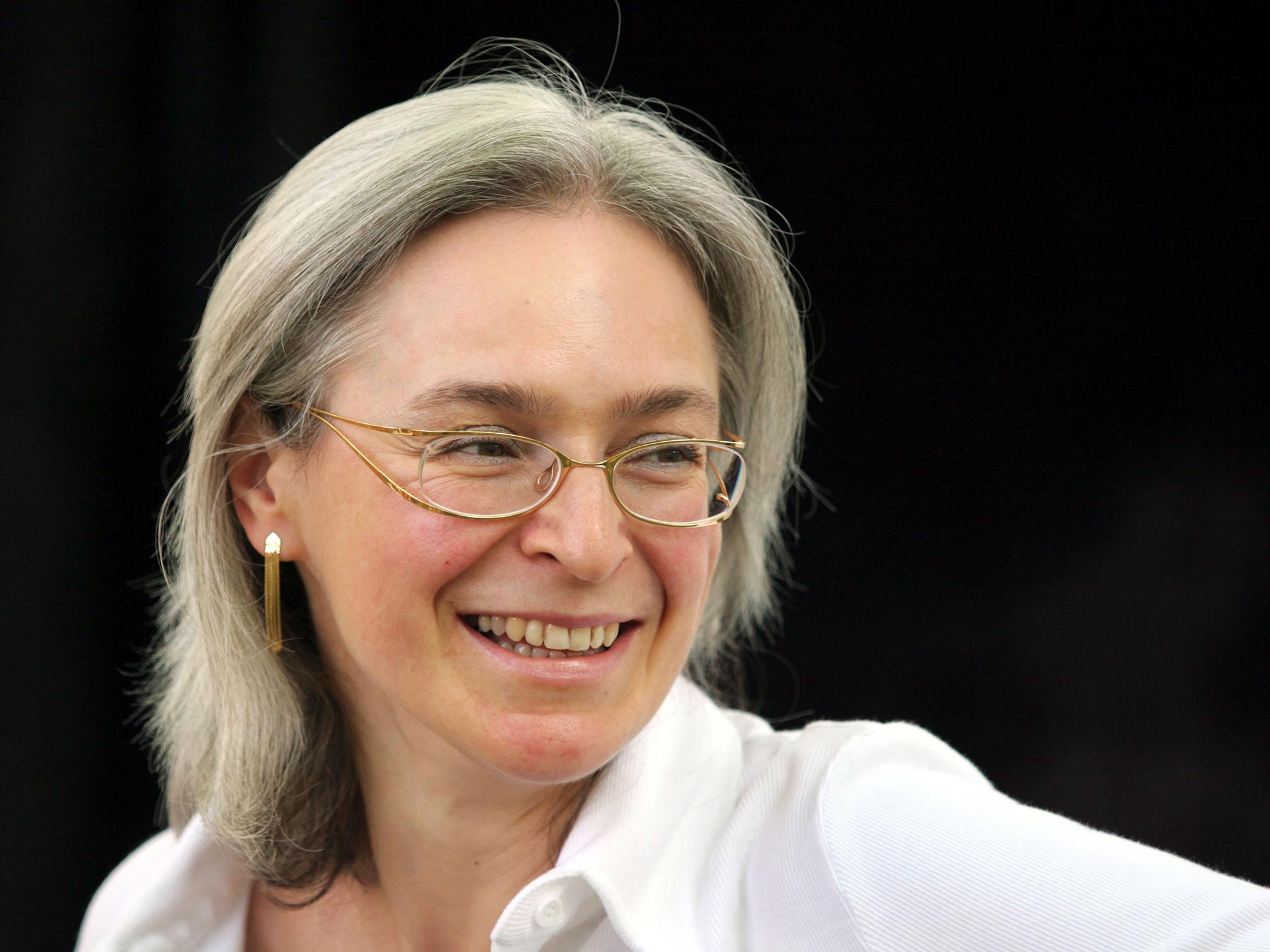Who really did kill Russian journalist Anna Politkovskaya?
The conviction of five men for the contract-killing of the Kremlin critic has not revealed who ordered the hit

The sentencing of five men at a Moscow court this week for the murder of Anna Politkovskaya means that, as far as the Russian authorities are concerned, after almost eight years this repeatedly bungled case is finally closed.
For almost everyone else – from her family, to the family of the men convicted, to supporters of the redoubtable investigative journalist around the world, it does not mean this at all.
Four of the convicted men come from the same Chechen family. Rustam Makhmudov received a life sentence for firing the shots that killed Politkovskaya, as she entered the lift at her block of flats on 7 October, 2006.
His uncle, Lom-Ali Gaitukayev, was also jailed for life for organising the murder. The three others, of whom two were Makhmudov’s brothers and one a former police officer, were given sentences of between 12 and 20 years.
Whether justice has been done, however, is another matter. Even if members of the Makhmudov clan committed the killing – which is by no means certain, as two of the brothers were acquitted in 2009, before being sent back for retrial by Russia’s Supreme Court – they were pawns in a much bigger game.
The judge, Pavel Melyokhin, was clear that this was a contract killing, with $150,000 paid by “a person unknown”. Nor was he in any doubt about the political motivation. Politkovskaya, he said, was killed for her work “exposing human rights violations, embezzlement and abuse of power”.
Politkovskaya, who was a reporter for the independent Novaya Gazeta, was a virulent critic of President Putin. She had campaigned fearlessly against Russia’s conduct of the war in Chechnya, earning the wrath of pro-Russian Chechen leaders and of the Kremlin alike. Sergei Sokolov, deputy editor at the paper, described her killers as “thugs” and said neither the organisers of the crime, nor the killers, knew who they were killing, or why.
Politkovskaya’s son, Ilya, said: “We will never consider the case closed unless the person or persons who ordered her killed are found and tried .”
There was as much discontent on the part of the Makhmudov family. The father of the convicted brothers claimed his sons had been “set up” and their lawyer said he would appeal to the European Court of Human Rights.
Outside Russia, the Organisation for Security and Co-operation in Europe welcomed the sentences, but agreed that the case would not be closed until “those who ordered this horrific murder are identified and convicted”.
The organisation’s media rights advocate, Dunja Mijatovic, said the case was a reminder that “impunity for crimes against journalists is still commonplace in several countries”.
As indeed it is. The moment news broke of Anna Politkovskaya’s murder, suspicions of culpability raced off in two different directions. The most obvious led to the Kremlin, if not to President Putin himself; that 7 October is his birthday fuelled speculation about someone perhaps offering a macabre present. The other led to Chechnya and enemies Politkovskaya might have made among the entwined political, business and clan interests there.
In a bizarre episode at the journalists’ Frontline Club in London a year after Politkovskaya’s death, the exiled Russian interior ministry officer, Alexander Litvinenko, publicly named Putin as the killer – a charge that appears to have been part of his own personal vendetta. But apart from that, all efforts to trace the chain of responsibility have failed. That includes an investigation by Novaya Gazeta.
Putin denied any Kremlin involvement, saying at the time – in a statement that sounded crass, but was not completely wrong – that her death was “more damaging to the current authorities, both in Russia and the Chechen Republic, than her activities”.
Her murder, whoever ordered it, reflected extremely badly on the Kremlin which had fostered a climate where such killings could happen.
In retrospect, Politkovskaya’s death may have brought some change. The international outcry kept the case in the public eye, which is one reason it was not dropped. There have been fewer attacks on journalists in Russia since – though this could also reflect fear of following where Politkovskaya led. And the judge’s recognition both of her qualities as a journalist and of the fact that politics lay behind her death marks progress.
But it is hard to agree with the prosecutor who described the convictions as “the highest achievement of the judicial system”. If they were, what does this say about the rest?
Join our commenting forum
Join thought-provoking conversations, follow other Independent readers and see their replies
Comments
Bookmark popover
Removed from bookmarks